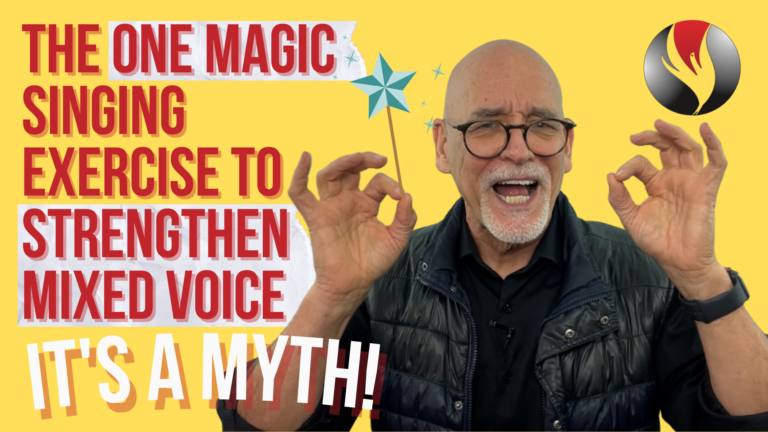Are you afraid to sing in front of an audience...or to sing at all?
Can you relate to these comments?
-
I’m 24 and I’ve had an intense fear of singing since I was twelve…I’ve been terrified to sing in front of anyone (and even in the shower, or when I’m home alone) because I don’t want anyone to hear me.
-
My dad loves to joke about a lot of things I do, especially when it comes to singing when I was younger. 7 years later I still can’t sing in my house…just thinking about others listening to me causes such a fear….
-
I have an amazing voice. Anyone who hears me sing is jaw dropped wondering why I’m so shy and don’t broadcast my talent. The truth is I honestly don’t know why I’m scared.
-
I used to sing all the time on stages as a kid. When I got older, I literally feel like I can’t sing in front of anyone, even the people closest to me…I want to put videos of me singing on the internet but I talk myself out of it every time & I have no idea why.
Why are you afraid to sing?
What exactly are you afraid of? What do you see in your mind’s eye that you believe will happen if you sing for an audience?
Here are some real life negative experiences that may have happened to you or to singers you know.
- Someone makes fun of your singing voice. This may be family or friends. The closer they are to you, the worse you feel. I know students whose parents, grandparents, siblings and other relatives have done this. They have criticized, teased, mocked, or humiliated them when they sang.
- You have experienced a singing “fail” and it was embarrassing to you. You may have been off tune, flat or sharp. You may have forgotten your lyrics or sang the wrong words. Maybe your voice cracked during your song. Perhaps you stuttered or stumbled on some words.
- You compare yourself to your favorite singer, or to your friend’s voice, or to other singers and performers you love, and you think you are awful in comparison!
- You tell yourself your voice is no good, or that you sound terrible, or that you can’t do it. You don’t meet your own expectations and believe you’re a failure.
Your Fear to Sing is in Your Imagination
Worse than these examples, you IMAGINE these things happening before you even open your mouth, and you see yourself failing miserably.
Here are some things that could happen to you if any of the above things actually do happen.
- You’re embarrassed and disappointed. You feel you’ve let yourself and others down by messing up. You feel humiliated. You never want to sing for an audience again.
- You get fired from your singing job.
- You don’t get cast in the show.
- You don’t get a record deal, or the label releases you.
- Everyone around you knows you messed up and that you’re not perfect.
- Your image as a singer and a professional is damaged.
- Your dreams of success are dashed.
Yes, these and many other bad things MAY happen when you experience a singing “fail”.
Here’s what doesn’t happen.
You don’t die.
The earth doesn’t explode.
The sun doesn’t stop rising.
Your dog doesn’t bite you.
Millions of People May Love Your Singing
In short, life goes on! You keep living.
Think about this.
Let’s say there are 7 billion people on the earth and 100 million people decide they don’t like your singing. That leaves you about 6 billion 900 million more people left on earth that have never heard you. Suppose only 1% of this group hears you sing and loves your voice. That’s a fan base of 69 million people!
Remember audiences forget, or they don’t care. And because they’re not as concerned as you are, you’ll get more chances to win them over.
You can learn from each experience. You can practice and steadily improve. You can sing again and it can be much better.
You can study voice and become an amazing singer. You can take dancing and acting lessons. You can practice until singing and performing is second nature to you.
You keep on going. You keep striving. You keep singing and developing your skills.
What you don’t do is quit.
Professional Singers Make Mistakes
Do you think professionals never make a mistake?
Watch John Lennon and Idena Menzel forget lyrics they’d sung 100’s, maybe 1000’s of times.
What if you fail in front of 100’s of thousands of fans? Here’s a video of a major failure in front of 65,000 people and thousands of people watching live on TV.
This video shows a top level college football kicker who rarely misses. He has already scored 6 points, helping Brigham Young University tie the 9th ranked Baylor football team. Now, with 13 seconds left to play, all he has to do is kick another field goal and BYU wins the game. Watch what happens.
But, ibn the first overtime, he gets a chance to redeem himself. He gets a second chance to kick a field goal and win the game for BYU. But, he missed again. Everyone is stunned.
100’s of thousands watching this game see him miss the game winning kick twice.
Rarely does singing put you in a high pressure situation like this where the success of the game is determined by you. However, we still imagine a great catastrophe might occur.
BYU went on to defeat Baylor in the second overtime with a touchdown.
Immediately after the game was over the BYU quarterback, Jaron Hall, embraced the kicker, Jake Oldroyd. During an after game interview he shared what he said to Oldroyd.
The BYU coach was asked after the game how he would help Oldroyd stay positive and confident. The interviewer asked:
What do you do after the GAME SO he doesn’t lose confidence?
Watch the coach’s answer:
Would you want to quit if this were you?
Watch what Oldroyd did two weeks later:
After his massive misses in the Baylor game, He kept practicing, working and trying.
There were many teammates, family, friends, and fans who supported him and believed in his abilities.
YOU ARE THE SAME. THERE ARE MANY OTHERS WHO BELIEVE IN YOU, NO MATTER YOUR PAST (and temporary) FAILURES. They love, support and believe in you.
If you fail, are you a failure? If you lose, are you a loser? Don’t let fear or failure deny you the personal growth, improvement, and success that can and will be yours!
Adversity often helps you improve faster than effortless success.
If you’ve experienced temporary failure, try following these suggestions:
Approach Failing as a Way to Get Better
- Approach failing as a way to get better. Make it an experience of learning.
- The best criticism of the bad, is the practice of the better…you are good enough….let’s just sing. Practice better. Practice to correct mistakes. Practice mental toughness. Make effort part of your mental and physical practice.
- Analyze your errors and plan exactly how to correct them and then practice the correction.
- Practice concentration during your practicing. Many mistakes are not because you aren’t prepared, but because you lost your concentration. Your mind wanders from the song or the feeling of the song and the meaning you want to express.
- Be grateful for your mistakes and excited to turn them into successes. Approach it as a way to get better, to improve. Learn something new with each performance and then focus on it during practice.
- Remember, your friends and family still love you, support you and “have your back”, in spite of your temporary setbacks.
Life does not end when you experience failure. It is a new beginning and opens the way for new learning. New practice, better preparation, new study, and a new way of thinking. It paves the way for incredible resiliency and success.
It’s up to you, and you are very capable and resilient.
Remember, if you fail to keep trying, you fail. Failure is never a failure unless you give up.
I’ve failed plenty of times, but I didn’t die and so I’ve kept working at getting better.
I’m Chuck Gilmore with Power To Sing. For you singing can be second nature.








Responses
https://le3u30uxng.wpdns.site/?s=breath+control these videos will help you get started.
I have a problem with breath control and belting
You can do it, Barbara!
I am intrigued. Since childhood my voice was captivating, solid, and beautifully tuned. A great gift from God! Then in adult years with many stressors, acid reflux, and bad gut health I find that my mid range goes horse, my voice sound “shrilly”, and I can’t wrap my voice around each note like I used to. I am searching far and wide on how to fix it!
Thank you for this encouragement to start again! I am on my journey and will find my voice again!
Just let him know you’d be happy to sing those songs as soon as he changes the key to (which ever key is better for you). If he says no way, just say that’s ok. Let hem know you’d love to sing and “Let me know when you’re ready”. So put it on them/him.
A friend invited me to sing a couple of songs with his band, but they are pure blues and he doesn’t even like to change key from the original (no criticism whatsoever, his band, his rules!) but he gave me ‘Mustang Sally’ and ‘Cocaine’ to sing – neither of which fall into my vocal range, I just can’t sing that low.
(Add to this that the minute you put a microphone in front of me I sing flat, whereas otherwise I can hold a tune.)
So, of course, my performance was rubbish.
Kindly, he always invite me to sing those songs with them, but I’m now terrified because I’ll still be crap, because I still can’t sing that low, but some are saying that just performing will increase my confidence, so I should do it anyway.
I’m wondering how I can take anything positive from a performance that will inevitably be bad since I can’t reach the low notes without croaking out ??
Thanks for your thoughts!
You likely are experiencing the aftermath of a stroke combined with aging. But, the good news is the Dr. said there is no damage. My sense is you can definitely get some strength and power back into your voice, however it will not likely be as agile as your voice was in your youth. Still…I bet there is a lot of good singing left. I recommend you take some lessons again. This will be your best and fasted way for rebuilding your voice. If you want me to help you here is a link to schedule lessons. https://le3u30uxng.wpdns.site/schedule-lesson/ All the best too you!
Hi Chuck,
At first I was hoarse for about two years. And my vocal tone seemed uncontrollable. Then I began to talk more and I felt a little more normal. I went to the doctor and he said my vocal cords are fine but that it would just take some time.
Fast forward maybe three years.
I could get tone but it felt different. Not connected to my emotional core. The timber was lighter , less focused. In my teens and through my twenty’s I had professional voice training some some of the best. So I was use to an agile voice. Could it be that I am just mourning that loss? How do I get back on track?
Hi Karin: What did the stroke do to your speech/vocal cords? Have you been singing the last two years?
Hi Mr. Gilmore,
I am a 74 year old former jazz singer. I had a stroke 8 years ago. And could not sing for about 6 of those years. How do I get back to singing? I love to sing, but I don’t know how to go about it to train for a stronger more agile voice.
So true, Pam! Thanks.
Awesome Idah! Glad this helped.
Glad this helped Ian! We all need reminders like this from time to time!
Thank you.
Of all the videos and emails I’ve received from you, this clearly is the best for me. Honestly, I thought you were talking to me personally. Thanks so much for what you do!
This had been my address until I read your article.
I’ve had a mind shift and I now know how to approach my fear of failing.
Thanks Chuck. This was helpful.
Reading these wise ,truthful ,encouraging words are inspiratstional in dealing with “failure and insecurity “ Thank you ..There are so many mysteries and needs snd demands in life, we almost do not , in reality , have the time to waste on imagined failure which most failure is..,it is perspective.